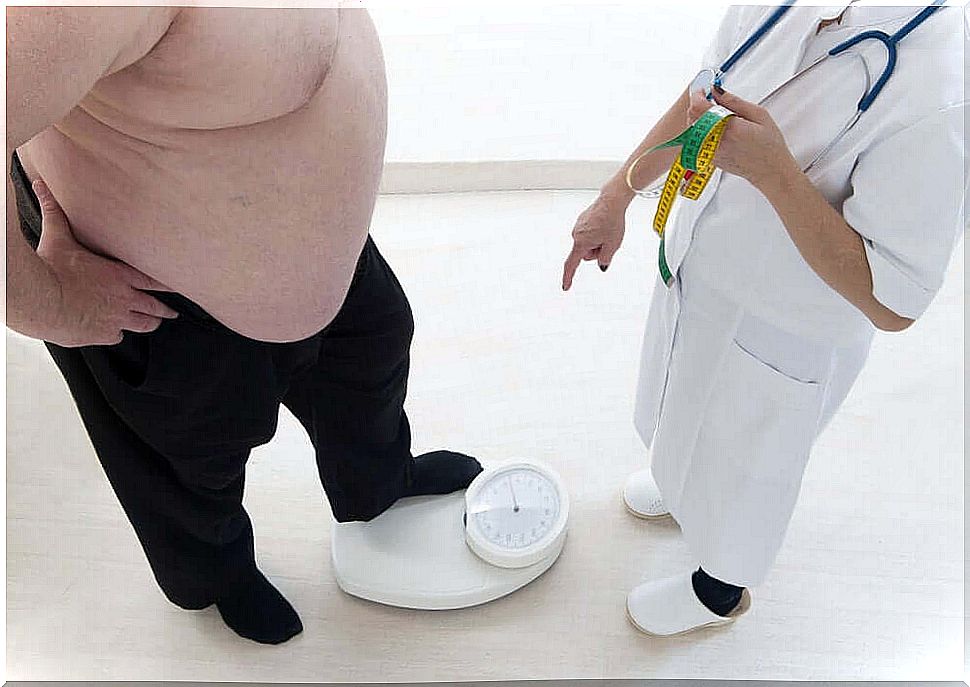5 Consequences Of Excessive Intake Of Ultra-processed Foods

Over the last few decades, the food industry has come into our homes to make things a little easier when it comes to eating. Lack of time and the fact that these foods are easy to make and tasty are the main reasons why we resort to this kind of food. But what effect does excessive intake of ultra-processed foods have on our health?
First, we need to keep in mind that a healthy diet is varied and includes fresh foods. This can lead to negative consequences, as you can see below, if you often turn to mass-produced products.
Consequences of too many ultra-processed foods
Overall, we can place foods in the following categories:
- Unprocessed or minimally processed foods such as fruits, vegetables, milk, meat, legumes, seeds, grains, eggs.
- Foods that have been modified to last longer or taste better, generally with salt, oil, sugar or fermentation. They include yogurt, cheese, ham, homemade bread, fruit, vegetables and legumes on glass, smoked fish or canned fish, beer and wine.
- Ultra-processed foods that have been subjected to synthetic industrial processes or substances from other foods. These often have a long list of ingredients on their labels. These include preservatives, sweeteners or color / flavor enhancers. In this group we can find processed meats like sausages and burgers, breakfast products or bars, sauces, powdered soups, sugary carbonated drinks, chicken nuggets, cakes, chocolate, ice cream, mass-produced bread. We also have many ready meals.
How does the consumption of ultra-processed foods affect our health?
Overall, the majority of these products have several of the following items in their composition:
- High calorie content: Usually these are empty calories; many calories with little to no nutrients.
- Hydrogenated or trans fats : The food industry generates these fats mainly to cut down on the price of the product and make it more tasty.
- Sugar : These products usually contain added sugar, which is not only found in baked goods. We can find them in sauces and meat products, etc. This ingredient has been shown to be able to cause obesity and metabolic problems, so one should limit consumption.
- Salt : Salt can prolong the life of a product, in addition to making it hyper-tasty.
- Refined flours and oils : Refined flours and oils are exposed to the industrial process. In this process, the vitamins and minerals are extracted.
- Additives : These are similar to preservatives, sweeteners and enhancers, etc. Some of these, like sweeteners, are capable of causing adverse changes in the composition of the intestinal microbiota compounds, according to a study published in Current Gastroenterology Reports.

1. Overweight and obesity
One of the biggest health problems caused by excessive intake of ultra-processed foods is an increase in body fat. This in turn leads to the person suffering from obesity.
According to the WHO, the number of cases of obese people has tripled in recent years. In 2016, 1,900 million 18-year-olds suffered from obesity. Of these, 650 million were clinically obese. As if that were not enough, in 2016, there were 41 million children worldwide who were obese or overweight.
In fact, the University of Navarra (Universidad de Navarra) conducted a study evaluating 8451 college students with a normal weight. This is because this is the demographic that usually consumes the most ultra-processed foods.
During the study , in 1939, students began to suffer from obesity or obesity due to the excessive consumption of ultra-processed foods.
2. Cardiovascular diseases
An increase in weight carries a higher risk of suffering from cardiovascular disease, such as hypertension, atherosclerosis, heart attack or stroke.
Also, excessive consumption of salt present in ultra-processed foods increases the likelihood of suffering from cardiovascular disease.
In fact, the same can be said about monosodium glutamate, which is an additive that improves the taste. According to several studies, excessive intake of this causes weight gain, oxidative stress, memory defects and epilepsy.
3. Type 2 diabetes mellitus
In addition, if we usually eat ultra-processed foods, which are usually rich in sugar, we can make ourselves diabetic.
For example, consuming 200 grams of sugar a day will cause insulin levels to shoot up in the air and glucose will not be able to enter the cells. Thus, it creates a change in a metabolic level that can lead to insulin resistance.
4. High cholesterol
A second consequence of consuming too many ultra-processed foods would also be the increase in cholesterol levels in our blood. This is not only because of the fat found in these products that many people believe, but also because of the sugar.
Continuing from the explanation above, insulin resistance means that the cells cannot open up to it, and as a result, glucose begins to accumulate in the arteries.
Thus, this means high glucose levels in the blood, resulting in high blood pressure, increased triglycerides, decreased HDL cholesterol and increased LDL.

5. Cancer
Unfortunately, eating ultra-processed foods can increase your risk of developing cancer. The less healthy we eat, the more likely we are to develop cancer.
Reduce your consumption of ultra-processed foods
Overall, we can see that all of these diseases are related to others and that one of the reasons is high intake of ultra-processed foods. If we also cultivate a sedentary lifestyle, it is a deadly combination.
However, it is important to stay informed about the nutritional properties of food. It is also important to change our unhealthy lifestyle habits. After all, ultra-processed foods are here to stay and we should learn to choose between them to avoid excessive amounts.









